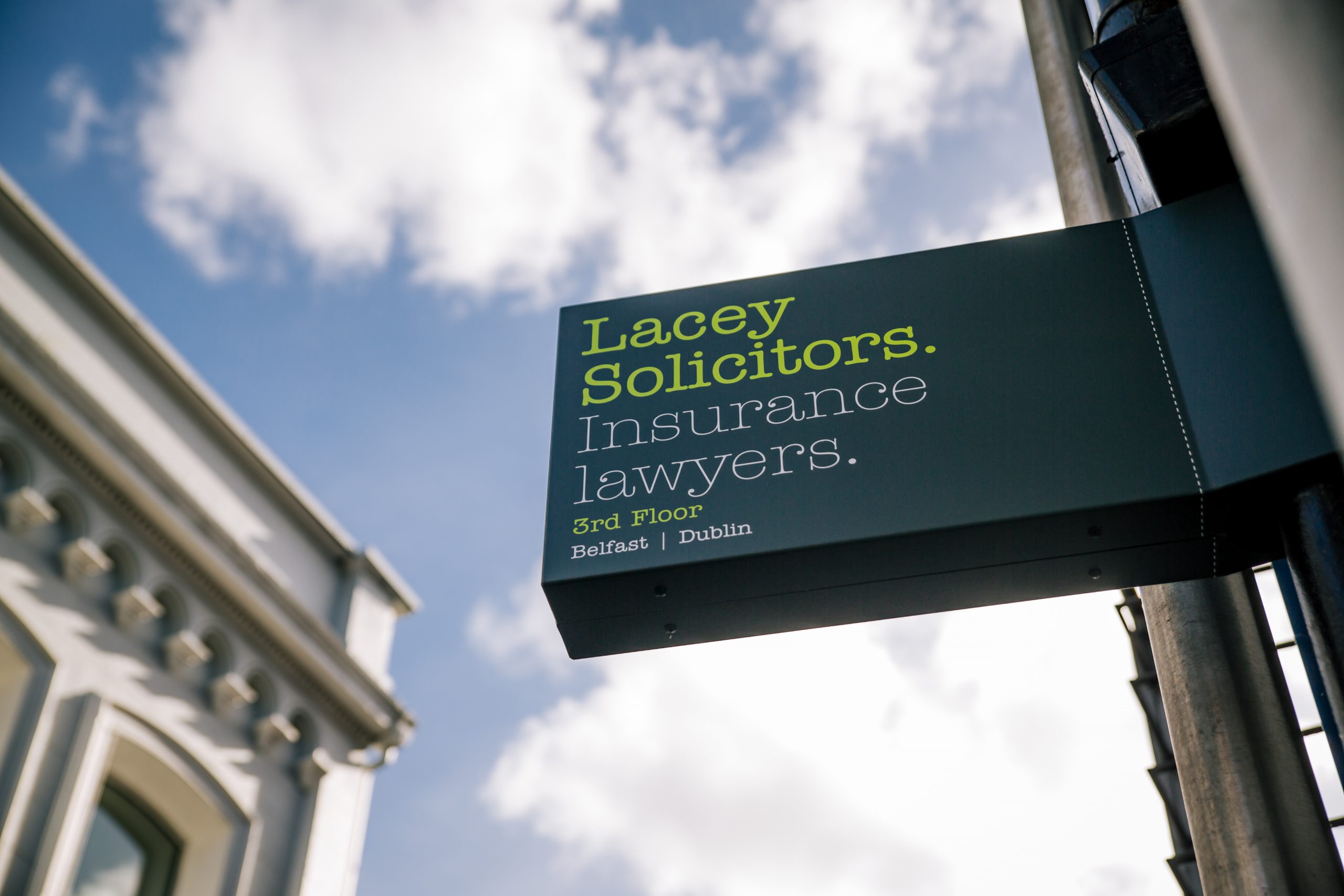The headlines have been dominated this week by Conor McGregor and the case against him by Ms Nikita Hand where Italian news articles indicate an ‘imminent publication’ of the Discovery from the case.
In November 2024, Ms Hand won her claim for damages and was awarded just shy of €250,000 damages against Mr McGregor on foot of the jury verdict where they found that he had raped Ms Hand six years ago.
McGregor’s legal team have indicated that they intend to appeal against the decision.
Whilst much focus has been made on the legal costs, which is an eye watering 1.3million Euro, the legal principles surrounding Discovery in Ireland is also gathering media attention.
Background
Lawyers for Ms Hand and Mr McGregor made representations relating to key CCTV evidence which showed Ms Hand in the Beacon Hotel, Sandyford, Dublin.
The material was gathered by An Garda Siochana and supposedly her demeanour in the CCTV footage was one of the factors that prompted the Director of Public Prosecutions (DPP) not to bring criminal charges.
It was provided by An Garda Siochana on foot of a High Court order for preparing for and litigating the civil case.
It was shown several times during the case and was the subject of media coverage.
Lawyers for Ms Hand had sought assurances that Mr McGregor would not disseminate the material after newspapers reported on social media comments that claimed the footage would be released this month.
The comments were attributed to Gabriel Ernesto Rapisardo, who Justice Owens said was a business associate of Mr McGregor.
Ray Boland SC for Ms Hand said Mr McGregor intended to disseminate selected pieces of the evidence with a view to “undermining and discrediting” the findings of the court.
Remy Farrell SC, for Mr McGregor said such an order was not necessary as there was already an implied undertaking that material for the case would not be misused or disseminated.
Justice Owens stated that “such leaking would be a gross contempt of Court.”
Discovery and Implied Undertakings
Discovery is a pre-trial procedure where parties to a lawsuit can obtain evidence from each other. The purpose is to prevent surprises during the trial and ensure that both sides have access to all relevant information.
The Discovery process in Ireland is governed by Order 31, of the Rules of the Superior Courts though our office has also written about alternative means for Discovery.
Documents and information, in this case CCTV Footage obtained by way of discovery in litigation are subject to an implied undertaking that they will not be used other than for the purposes of the proceedings in which they are concerned.
I.e. McGregor and his legal representatives are prohibited from using the CCTV for any other purpose other than the Defence of the civil claim brought against him by Ms Nikita Hand.
The implied undertaking is owed to the court. Such discovery may not be used to found other causes of action. The law in Ireland is therefore broadly similar to that of NI.
The rationale underpinning the undertaking was explored in Greencore Group plc v Murphy, where Keane J highlighted that it was an invasion of private rights, constituted by discovery:
“The order requiring the production of…documents is an invasion of the right of the person against whom the order is made to keep his documents to himself and it is for this reason that the Court will ensure that documents are not used for any purposes other than the purpose of the particular legal proceedings in which they are produced by making the order for production subject to that implied undertaking.”
Leaking of documents/information would constitute a breach of undertaking.
In the current case Justice Owens confirmed that it would be a gross breach of Ms Hand’s privacy adding that “the material would quickly spread on the internet and reach the furthest corners of that dark hole”.
The undertaking survives notwithstanding that any discovery obtained is often used in open court. In this case the CCTV footage was show several times during the case and was the subject of significant media coverage. The fact that there is an inevitable degree of publicity does not justify widespread dissemination of the material for an ulterior purpose.
Breaching Implied Undertakings in Discovery in Irish case Law
Tobin v. Minister for Defence [2019] IESC 57 highlighted the importance of the discovery process in ensuring fair civil proceedings while acknowledging potential burdens.
Implications of breaching an implied undertaking were explored in the Irish Supreme Court case of Waterford Credit Union v. J & E Davy [2020] IESC 9 where both the High Court and Court of Appeal, whilst finding documentation to be relevant and necessary, denied discovery citing a breach of the implied undertaking by Waterford’s solicitor in separate proceedings, which had improperly used information obtained during discovery.
Upon appeal, the Supreme Court reversed the Court of Appeal’s decision, holding that the breach of the implied undertaking by Waterford’s solicitor in unrelated proceedings should not prevent the discovery of relevant and necessary documents in the current case. The Supreme Court emphasized the primary duty of ensuring substantive justice and maintaining the integrity of the discovery process over procedural technicalities involving breaches by legal representatives in separate instances.
Contempt of Court in Ireland
Justice Owens in this case confirmed that there was a “real and demonstrable risk” that the footage would be disseminated and, if that happened, it would be a breach of the implied undertaking not to misuse the material and would constitute civil contempt of Court.
Contempt of court is refers to any behaviour or action that disrespects, disobeys or challenges the authority, justice system and dignity of the work of the courts. It protects the administration of justice by ensuring that court orders are obeyed and that courts can run smoothly.
In Ireland, contempt of court remains on a common law footing. This is in contrast to NI where it is enshrined in legislation through the Contempt of Court Act 1981. Indeed the Supreme Court in Ireland has been calling for contempt-of-court legislation for some time. In Kelly v O’Neill ([2000] 1 IR 354), Keane J said that “our law in this area is, in many respects, uncertain and in need of clarification by legislation”.
Order 44 of the Rules of the Superior Courts provides that those in contempt of a court order can be attached (arrested) and committed to jail, but it doesn’t specify what “contempt” is.
The Law Reform Commission published a Consultation on Contempt of Court in July 1991 under which it recommended legislative codification on the law in this area, but as of 2025 the closest we have seen to codification is the Contempt of Court Bill 2017, which may have gained traction again if its sponsor, Josepha Madigan, had been re-elected.
In Irish Bank Resolution Corp Ltd v Quinn and Ors [2012] IESC 51, the Supreme Court commented that the law of contempt of court was amorphous and extremely difficult for the layperson to understand and could be unclear even to judges and lawyers.
The Judge even referred to the position in NI in stating;
“It is 20 years now since the Law Reform Commission urged the need for statutory reform in this area, and some 31 years since such reform took place by statute in the neighbouring jurisdiction. It is most unfortunate that no positive steps have been taken here, with the result that this fraught matter has come on for resolution in an uncertain state of the law.”
It is understood that the Law Reform Commission continues to consider the matter, but due to the urgency of other work in hand, its report on contempt is not expected to be published until late 2025.
Minister for Justice Helen McEntee has stated that the publication of this final report is awaited before her department considers any changes to this complex area of law.
Dealing with Contempt
An infamous line that any UFC fans attribute to Mr McGregor comes to mind, “You’ll do nothing.”
Another is ‘I’d like to apologise…to absolutely nobody.’
In dealing with Civil Contempt, there is the question of the appropriate order, if any, on foot of any finding of contempt.
Such orders may include, but are not limited to custodial orders, but may also include financial orders. This is against a backdrop of Justice Owens referring to Mr McGregor as ‘one of the wealthiest men in the country.’
The Judge considered social media posts in which Mr McGregor was said to have “scandalised the court” after the jury’s verdict where he referred to Ms Hand as a liar and the court as a ‘kangaroo court’. He indicated that any action at that stage would only give oxygen and more publicity. He opted to take no action on the “kangaroo court” comments as it would be a “distraction” and “only keep him in the news cycle”.
Justice Owens has indicated it was necessary to ‘nip this in the bud’ and directed Mr McGregor to return ‘all fobs or sticks’ containing the footage to his solicitor and arrange the permanent deletion of the files from computers and phones within one week.
The judge also directed him to make an affidavit indicating what copies had been made and how they were deleted.



![Understanding Liability in James v Halliday [2024] IEHC 281](https://laceysolicitors.com/wp-content/uploads/2024/07/maria-adams.jpg)









